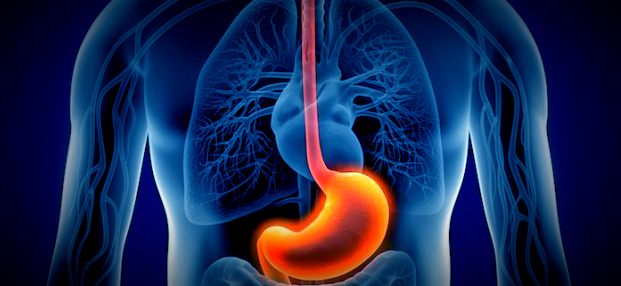Symptoms
“The stomach is the reason why man does not easily think of himself as a god.”
Friedrich Wilhelm Nietzsche (1844 – 1900)
Good knowledge and understanding of basic manifestations or symptoms of diseases of the upper digestive tract is a necessary precondition for establishing of accurate diagnosis and making informed decisions about the appropriate method of treatment.The symptoms of the upper digestive tract or occurring due to disturbance of its functions or the presence of pathological changes that disrupt the normal flow of food or digestive process.Very often they are similar to the symptoms of other diseases close organs (heart, lung, colon, liver or pancreas), making it necessary detailed history and appropriate diagnostic examinations to determine the true cause of disease and to exclude certain emergencies.
Organic obstacles or functional disorders at the level of the esophagus and the initial part of the stomach (eg, achalasia or peptic stenosis) can cause discomfort in the form of difficulty in swallowing food, while changes in the outlet part of the stomach leads to nausea, vomiting and abdominal bloating.The presence of certain conditions that allow the return of gastric contents into the esophagus (gastroesophageal reflux disease, hernia hjiatusa esophagus) usually lead to the symptoms of heartburn and regurgitation, which is manifested by a feeling of “baking”, “annealing” or “ignition” behind the breastbone.Some diseases that are accompanied by strong muscle contractions of the esophagus can cause chest pains very similar pain caused by disorders of the heart or ischemia.Also, diseases of the upper digestive tract are often accompanied by the presence of pain in the upper middle part of the abdomen or below the right costal and “poor digestion of food,” or dispesijom, as in cases of gastritis or peptic ulcer disease.
From all the above it is clear that the symptomatology of the upper digestive tract includes a wide spaktar, often very nonspecific symptoms.A serious approach and the correct interpretation of these symptoms, followed by the implementation of appropriate diagnostic procedures significantly reduces the possibility of diagnostic error and prevents the possibility of more severe disease.
Symptoms
- Heartburn
- Regurgitation
- Difficulty Swallowing (Dysphagia)
- Noncardiac Chest Pain
- Extraesophageal Symptoms of GERD
- Epigastric and Right Subcostal Pain
Lexicon
Patients Informations
Soon
If you have more questions contact us:
info@refluxcentar.com

 српски
српски

